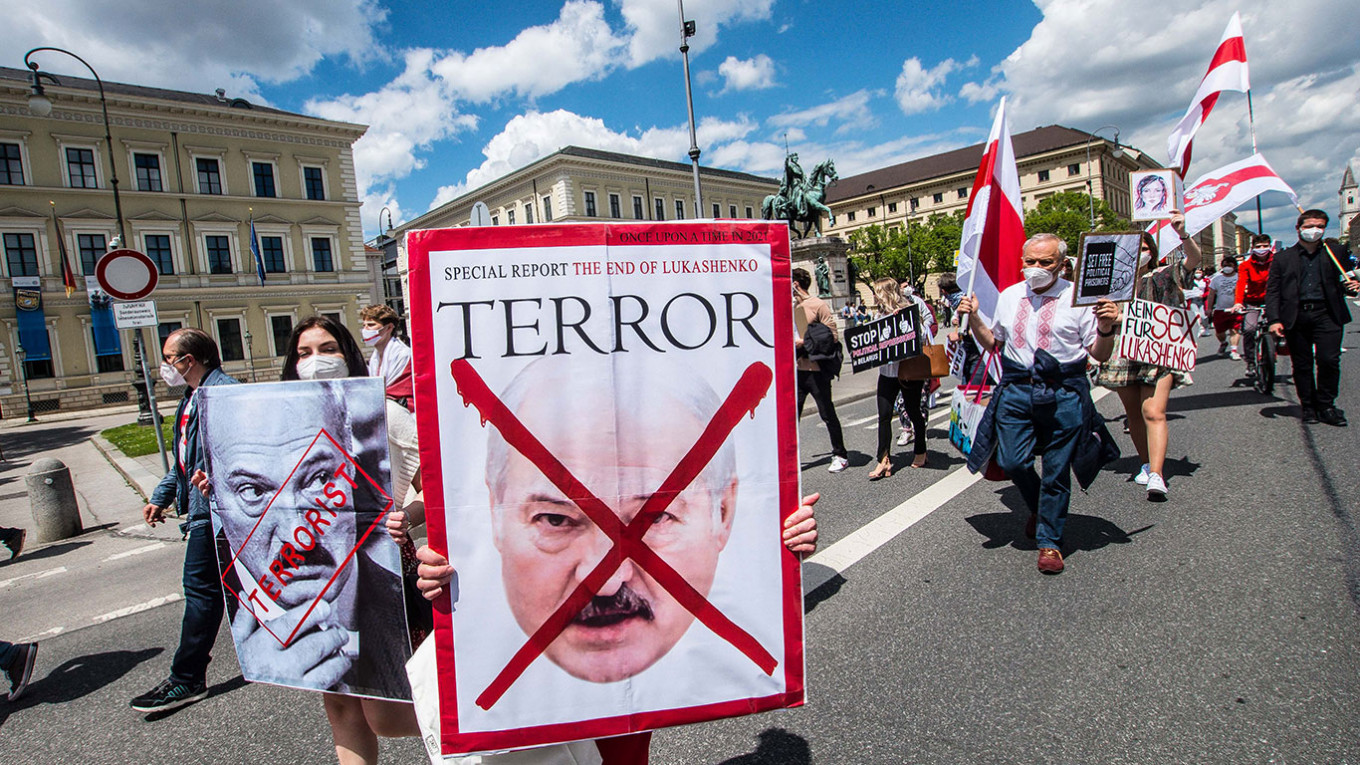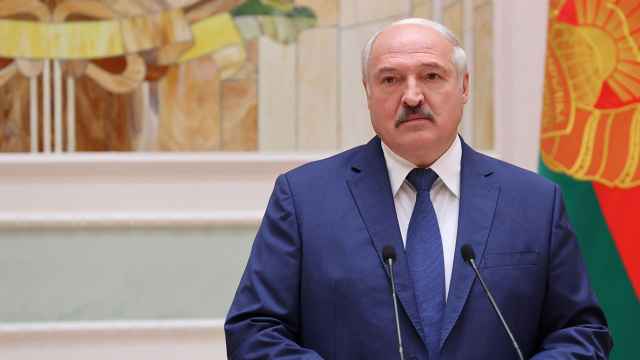Updated at 8:09 p.m. on Oct. 13 to add Nexta's statement.
Belarusians subscribing to banned media outlets on social media will themselves be recognized as “extremist” under a new law, authorities said in an announcement disputed by independent Telegram channels.
Belarusian authorities have labeled more than 100 Telegram channels “extremist” as part of an ongoing crackdown on independent media and opposition groups following last year’s presidential elections which saw Lukashenko claim a sweeping but highly disputed victory.
The new decree, signed into effect early October, will “hold subscribers of extremist Telegram channels and chats criminally liable as members of an extremist group,” the country’s Main Directorate for Combating Organized Crime (GUBOP) Telegram channel said Tuesday. It added that subscribers could face up to seven years in prison on the charges.
But Nexta, the largest Belarusian Telegram outlet to be labeled “extremist,” called the GUBOP's statement “rubbish.”
“In the resolution ... there is not a word about criminal liability,” Nexta, which has nearly 1 million subscribers, wrote Wednesday.
“'Thank you' to everyone who helped the junta intimidate people and reduce the number of those who read independent Telegram channels,” it said.
Protests erupted across Belarus last summer over the Aug. 9, 2020, election results, which were deemed fraudulent by several international observers and Western countries. Opposition supporters heavily relied on Telegram, an encrypted messaging app, to coordinate protest actions.
Lukashenko refused to relinquish power or hold a rerun of the ballot, instead carrying out a harsh crackdown on the opposition.
Leading opponents — including Svetlana Tikhanovskaya, who claims to have won the election, and protest leader Maria Kolesnikova — have either fled the country or been locked up.
Nexta's founder and former editor Roman Protasevich is under house arrest in Belarus after Minsk ordered the forced landing of Protasevich’s Ryanair flight from Athens to Vilnius and detained him. The move triggered international uproar and led to the EU banning its airlines from using Belarus’ air space.
The country’s leading independent media outlet, Tut.by, was raided by security services and forcibly closed earlier this year as part of the country’s aggressive crackdown on dissent. Last week a criminal case was opened against several Tut.by journalists on charges of inciting social hatred.
Lukashenko has been in power in what some commentators refer to as “Europe’s last dictatorship” since 1994. The country has become increasingly reliant on Russia for political and financial backing.
A Message from The Moscow Times:
Dear readers,
We are facing unprecedented challenges. Russia's Prosecutor General's Office has designated The Moscow Times as an "undesirable" organization, criminalizing our work and putting our staff at risk of prosecution. This follows our earlier unjust labeling as a "foreign agent."
These actions are direct attempts to silence independent journalism in Russia. The authorities claim our work "discredits the decisions of the Russian leadership." We see things differently: we strive to provide accurate, unbiased reporting on Russia.
We, the journalists of The Moscow Times, refuse to be silenced. But to continue our work, we need your help.
Your support, no matter how small, makes a world of difference. If you can, please support us monthly starting from just $2. It's quick to set up, and every contribution makes a significant impact.
By supporting The Moscow Times, you're defending open, independent journalism in the face of repression. Thank you for standing with us.
Remind me later.






